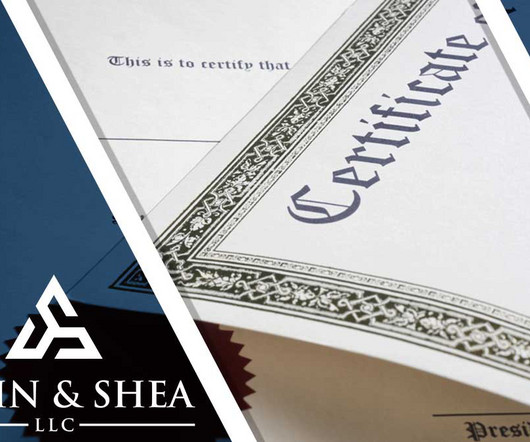What Is the Impact of Bankruptcy on Professional Licenses and Certifications?
Sawin & Shea
APRIL 3, 2024
Bankruptcy Code Section 525(a) states that: “…a governmental unit may not deny, revoke, suspend, or refuse a license, permit, charter, franchise, or other similar grant to…a person that is or has been a debtor under this title or a bankrupt or a debtor under the Bankruptcy Act.”

















Let's personalize your content